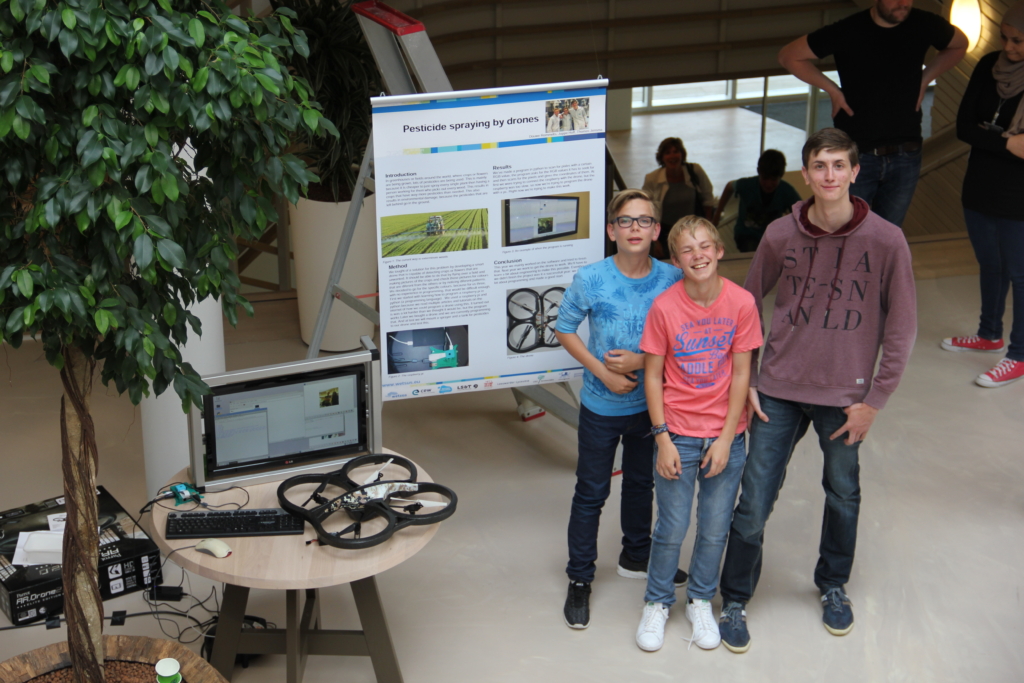Vind jij onderzoek doen leuk? Ben je nieuwsgierig en zou je meer te weten willen komen over watertechnologie? Dan is het Honors program iets voor jou!
In het Honors program ga je samen met andere geselecteerde scholieren een jaar lang onderzoek doen. Elke woensdagmiddag kom je naar Wetsus, waar je onder begeleiding van een van onze onderzoekers aan een eigen project werkt:
Kies zelf een actueel en maatschappelijk relevant project. Aan het eind van het jaar presenteer je de resultaten op de Science Fair bij Wetsus. Je kunt dit onderzoek gebruiken voor je profielwerkstuk of meesterproef.
Wetsus werkt samen met andere universiteiten en bedrijven in Europa. Deze partners organiseren Science Fairs en andere evenementen, waar je vanuit het Honors program naartoe kunt gaan. Zo zijn we voorgaande jaren naar Italië, Slowakije en Polen geweest. Je ontmoet op deze manier veel andere jongeren met inspirerende ideeën op het gebied van water!
Met je onderzoek kun je meedoen aan de jaarlijkse werkstukken wedstrijd “Dutch Junior Water Prize”. Dit is de Nederlandse voorronde van de jaarlijkse “Stockholm Junior Water Prize”: de meest prestigieuze internationale prijs voor watertechnologisch onderzoek door jongeren.
